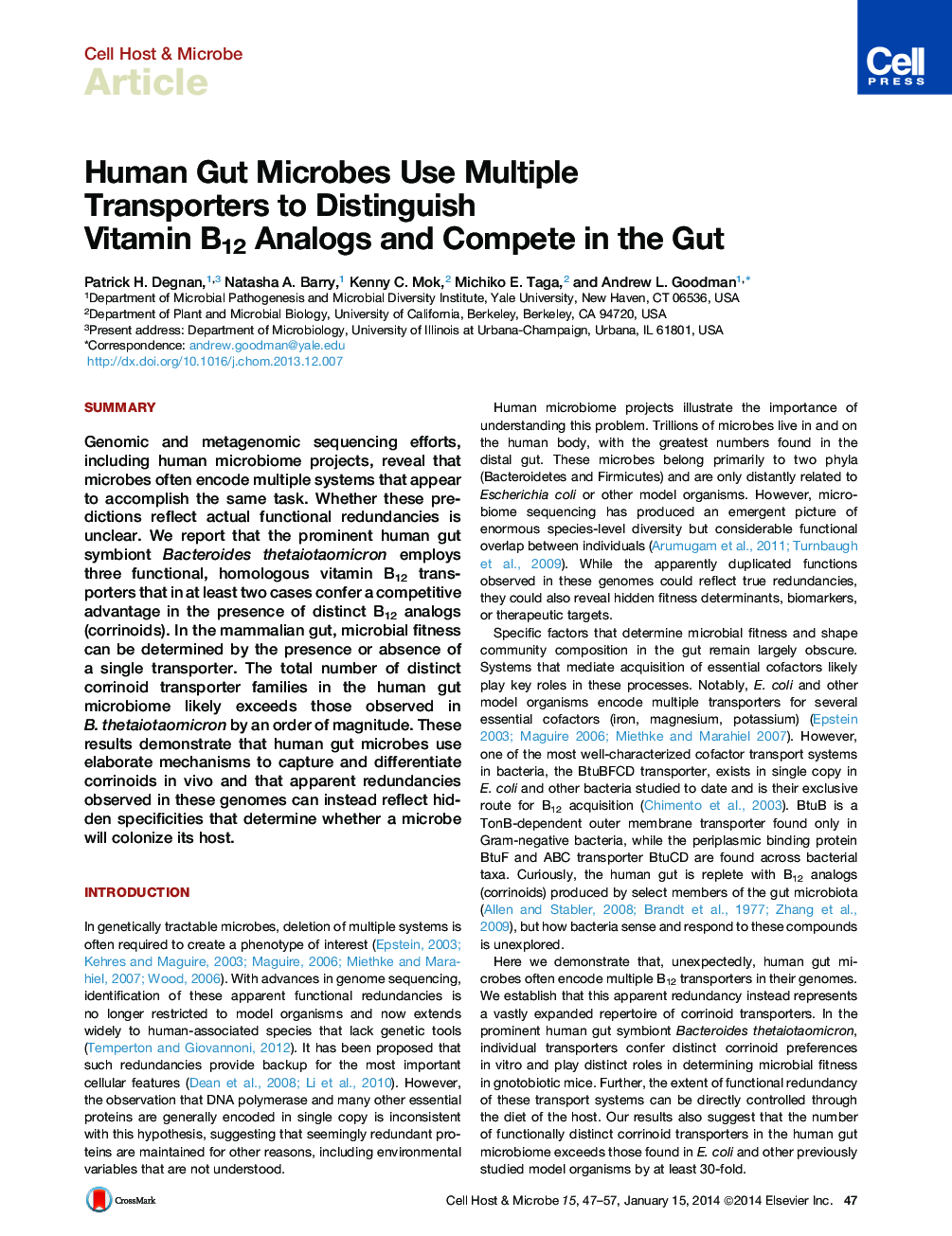| Article ID | Journal | Published Year | Pages | File Type |
|---|---|---|---|---|
| 4361121 | Cell Host & Microbe | 2014 | 11 Pages |
•Human gut microbes often encode multiple transporters for vitamin B12•The B12 transporters preferentially capture distinct B12-like small molecules (corrinoids)•Despite apparent redundancy, single transporters determine microbial fitness in mice•The human gut microbiome contains dozens of corrinoid transporter families
SummaryGenomic and metagenomic sequencing efforts, including human microbiome projects, reveal that microbes often encode multiple systems that appear to accomplish the same task. Whether these predictions reflect actual functional redundancies is unclear. We report that the prominent human gut symbiont Bacteroides thetaiotaomicron employs three functional, homologous vitamin B12 transporters that in at least two cases confer a competitive advantage in the presence of distinct B12 analogs (corrinoids). In the mammalian gut, microbial fitness can be determined by the presence or absence of a single transporter. The total number of distinct corrinoid transporter families in the human gut microbiome likely exceeds those observed in B. thetaiotaomicron by an order of magnitude. These results demonstrate that human gut microbes use elaborate mechanisms to capture and differentiate corrinoids in vivo and that apparent redundancies observed in these genomes can instead reflect hidden specificities that determine whether a microbe will colonize its host.
Graphical AbstractFigure optionsDownload full-size imageDownload high-quality image (263 K)Download as PowerPoint slide
